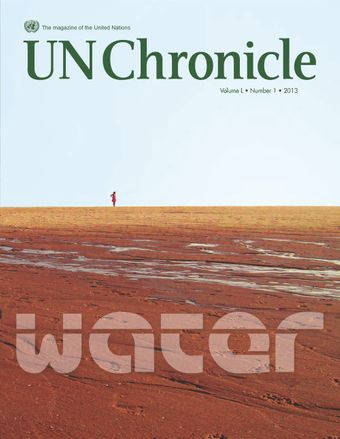-
Waetr brings people together to create a better planet
- Source: UN Chronicle, Volume 50, Issue 1, Apr 2013, p. 28 - 31
- French
-
- 25 Apr 2013
Abstract
A report from the 2030 Water Resources Group (November 2009), Charting Our Water Future: Economic Frameworks to Inform Decision-making, suggests that by 2030, in some developing regions of the world, water demand will exceed supply by 50 per cent. This is an alarming figure and shows the importance of access to this essential resource. Quick, evidence-based decision-making by national and international policymakers is required to avoid dramatic consequences for the planet and its population. However, policy decisions are not always forthcoming. Fortunately, there are some interesting shifts that may change this picture soon. One of the most important is the new vision that significant parts of the scientific community are developing to define its role in the decision-making process, as well as the growing consciousness of global citizens who want to be part of the process. The way forward for evidence-based decision-making is the creation of a triangular relationship among scientists, policymakers and an informed citizenship. Science centres and museums worldwide have the capacity and the willingness to help create that new relationship.
© United Nations



